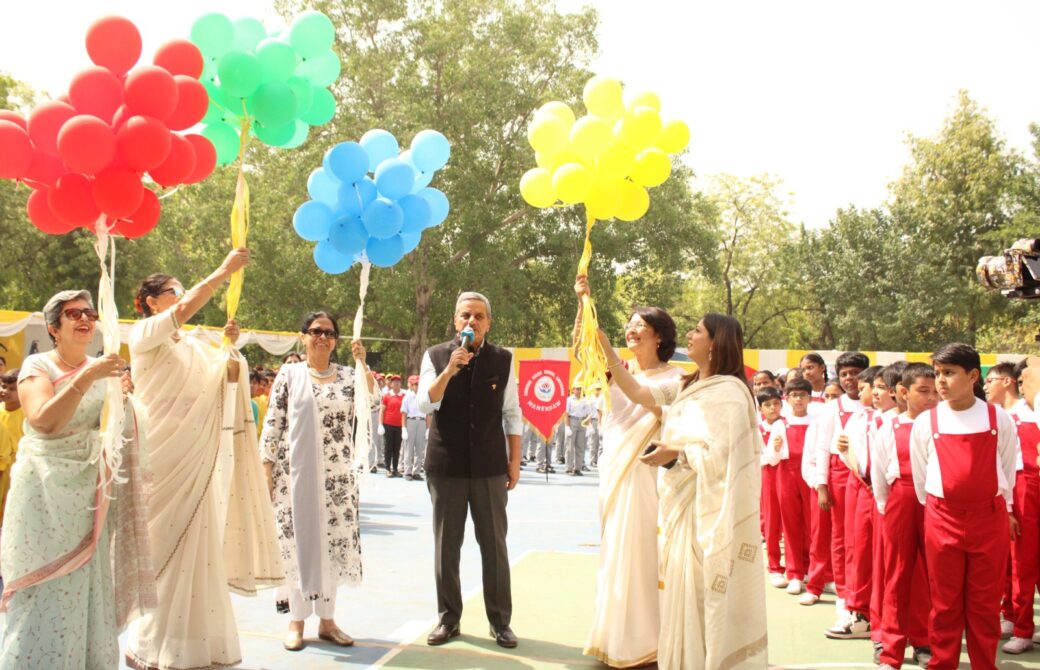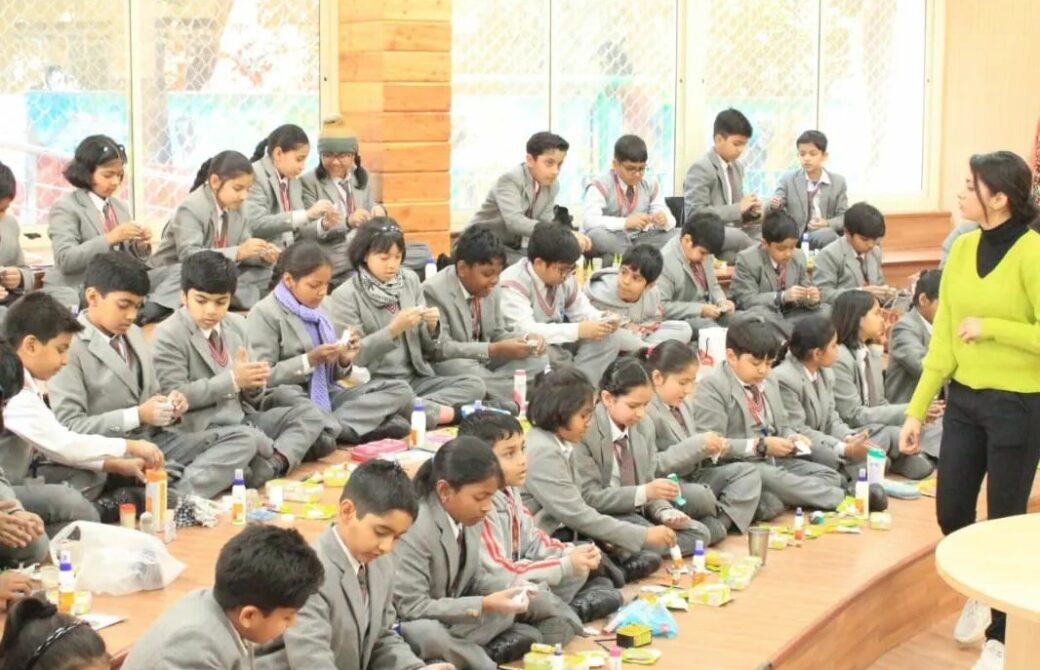Introduction:
In today’s fast-changing world, education is no longer restricted to textbooks and classrooms. At Summer Fields School, Gurugram, the Best CBSE Schools in Gurugram where parents now expect their children to gain exposure, confidence, and skills that prepare them for challenges beyond school boundaries. Participation in national and international competitions gives students a platform to test their knowledge, creativity, and leadership skills at a global level. This is why parents often prefer the schools, as these institutions emphasize holistic growth and competitive readiness alongside academics.
This article explores how schools nurture students to succeed in competitions, what strategies are used for preparation, and why these experiences shape future leaders.
About Us:
With a legacy of nearly four decades, the institution empowers learners to excel at both national and global platforms through a strong balance of academics and co-curricular activities. Students participate in sports tournaments, Olympiads, Model UNs, and inter-school debates that sharpen competitive spirit and leadership skills. Events such as CyFerNode and cultural showcases offer opportunities to demonstrate creativity, innovation, and teamwork. The learning environment blends classroom knowledge with experiential challenges, ensuring every child builds confidence to represent themselves on larger stages. A rich house system, outdoor excursions, and regular academic fests encourage collaborative growth and skill-building. Guided by the philosophy of “education for life,” the campus nurtures resilience, self-discipline, and talent, preparing children not just to compete but also to thrive in diverse environments.
Why Competitions Matter in Education
- Building Confidence: Competing at national and international levels helps students overcome stage fear and boosts self-belief.
- Exposure to Global Standards: Children learn how peers worldwide perform in academics, science, arts, and sports.
- Skill Development: Beyond book knowledge, competitions instill problem-solving, communication, and teamwork.
- Motivation to Excel: Students strive for higher achievements when they know they will be representing their institution.
- Early Career Advantage: Achievements in competitions add weight to future college admissions and career prospects.
How Leading Institutions Prepare Students
1. Academic Excellence as a Foundation : Strong fundamentals in mathematics, science, and language are critical to competitive success. The schools ensure a rigorous curriculum that prepares students for Olympiads, debates, quizzes, and coding competitions. Teachers often introduce advanced modules to help students go beyond the standard syllabus.
2. Mentorship and Coaching Support : Mentorship is key in transforming potential into performance. Schools assign expert teachers or external coaches who provide personalized training sessions. Students are guided in critical thinking, time management, and stress handling techniques to perform under pressure.
3. Exposure Through Inter-School Events : Regular participation in inter-school competitions builds confidence before students step onto national or international platforms. From MUNs (Model United Nations) to robotics challenges, these events sharpen presentation and research skills.
4. Technology-Integrated Training : The digital era demands advanced preparation methods. Many schools use AI-driven learning platforms, online test simulations, and global webinars that expose students to real-world problem-solving scenarios. Such tools give a competitive edge while preparing for prestigious contests.
5. Developing Holistic Skills : Academic brilliance alone is not enough. Leadership programs, personality development workshops, and soft-skill training sessions are embedded into daily learning. This ensures that when students compete, they are confident speakers, effective collaborators, and innovative thinkers.
Competitions That Shape Student Success
National Platforms
- Science and Math Olympiads – Test analytical and problem-solving skills.
- National Talent Search Examination (NTSE) – Recognized gateway for scholarship and academic recognition.
- Debates and Quizzes – Encourage logical reasoning and communication skills.
- Sports Tournaments – Instill discipline, teamwork, and resilience.
International Platforms
- International Olympiads in Physics, Chemistry, and Mathematics – Exposure to world-class academic competition.
- MUN Conferences – Students learn diplomacy, negotiation, and global awareness.
- Robotics and Coding Competitions – Platforms like FIRST Robotics challenge learners to innovate using STEM.
- Art and Literature Festivals – Encourage creativity at a global scale.
The Role of Teachers and Parents
While institutions provide resources, the role of teachers and parents cannot be overlooked:
- Teachers act as mentors, guiding students with strategies, motivation, and personalized attention.
- Parents provide emotional support, encouragement, and balance between studies and competition preparation.This triangle of student-teacher-parent collaboration creates a strong support system.
Overcoming Common Challenges
- Balancing Academics and Competition Prep – Schools design flexible schedules to avoid overburdening students.
- Managing Stress – Yoga, mindfulness sessions, and counseling are introduced to handle performance anxiety.
- Global Exposure Limitations – Virtual participation in international forums helps overcome travel or access restrictions.
Real-World Impact of Competition Exposure
Students who participate in such platforms often:
- Develop higher resilience and adaptability.
- Gain a global mindset, helping them excel in international universities.
- Build leadership qualities that last throughout their careers.
- Inspire peers and juniors, creating a cycle of continuous improvement in schools.
How the Best Schools Stand Out
The schools stand apart because they:
- Blend academic rigor with extracurricular focus.
- Provide global exposure through exchange programs.
- Have dedicated competition cells or talent development departments.
- Offer platforms where every child—whether in arts, science, or sports—can shine.
These differentiators ensure that students are not just educated but also empowered for the future.
Tips for Parents Looking to Nurture Competitive Spirit
- Encourage participation without focusing only on winning.
- Recognize small achievements to boost morale.
- Help children maintain balance between studies and hobbies.
- Foster curiosity at home with books, puzzles, and global news discussions.
- Collaborate with teachers to provide the right guidance and resources.
Conclusion:
In an era where global exposure and competitive spirit matter as much as academic excellence, preparing students for national and international competitions has become a defining feature of progressive education. At Summer Fields School, Gurugram, the Top CBSE Schools in Gurugram where the schools lead this change by nurturing well-rounded individuals who are confident, skilled, and future-ready.
For parents, choosing such an institution means ensuring that their children are not only prepared for exams but also trained to excel on global platforms—ready to lead, innovate, and inspire.
FAQs:
Q. 1. How do schools prepare children for national and international competitions?
Ans : They integrate competitive training into the curriculum, offer mentorship, and provide exposure through Olympiads, Model UNs, quizzes, and sports tournaments.
Q. 2. Why is participation in competitions important for students?
Ans : It builds confidence, enhances problem-solving skills, fosters leadership, and develops resilience in challenging environments.
Q. 3. What role do extracurricular activities play in competition readiness?
Ans : Debates, theatre, sports, and clubs nurture communication, teamwork, and critical thinking—essential for excelling in contests.
Q. 4. Do schools provide mentorship for global events?
Ans : Yes, dedicated faculty guide students through preparation, ensuring they understand international standards and expectations.
Q. 5. How does competition exposure benefit future careers?
Ans : It strengthens portfolios, encourages adaptability, and positions learners for success in higher education and professional pursuits.
Q. 6. Can parents support competition preparation at home?
Ans : Absolutely—by encouraging curiosity, creating a supportive environment, and engaging with practice resources.







